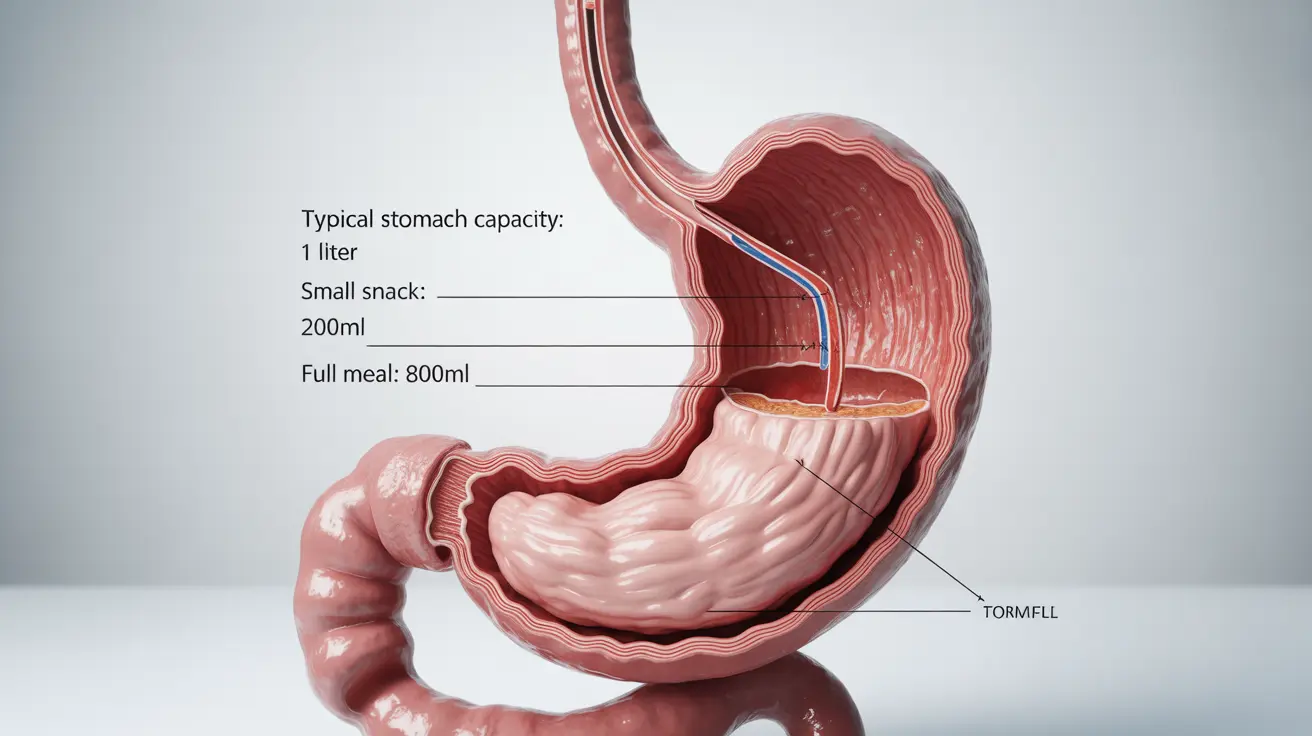Many people wonder if it's possible to physically shrink their stomach to help with weight management and portion control. While the concept of "shrinking" your stomach isn't exactly what most people think, there are both natural and medical approaches that can help reduce stomach capacity and manage hunger signals effectively.
Understanding how your stomach works and adapts to eating habits is crucial for making informed decisions about portion control and weight management strategies. Let's explore the science behind stomach size, appetite regulation, and proven methods for managing food intake.
Understanding Stomach Capacity and Adaptability
Your stomach is a remarkably adaptable organ that can temporarily expand and contract based on food intake. While you can't permanently shrink its physical size through diet alone, you can train your body to feel satisfied with smaller portions through consistent habits and behavioral changes.
The stomach typically holds about 1-1.5 liters of food and liquid during a meal, but it can stretch to accommodate more when necessary. Regular overeating can lead to the stomach becoming more easily stretched, while consistent portion control can help maintain a more moderate capacity.
Natural Methods to Reduce Stomach Capacity
Portion Control Strategies
Implementing effective portion control is key to managing stomach capacity and hunger signals. Start by:
- Using smaller plates and bowls
- Measuring portions with kitchen tools
- Eating slowly and mindfully
- Stopping when you feel 80% full
Dietary Approaches
Certain dietary strategies can help you feel fuller with less food:
- Including high-fiber foods in every meal
- Starting meals with water-rich vegetables
- Consuming adequate protein
- Spacing meals consistently throughout the day
Medical Interventions for Stomach Reduction
Bariatric Surgery Options
For those with severe obesity, medical interventions may be recommended. Common surgical procedures include:
- Gastric bypass surgery
- Sleeve gastrectomy
- Gastric banding
- Gastric balloon placement
These procedures physically reduce stomach capacity but require careful consideration and consultation with healthcare providers.
Lifestyle Changes That Support Success
Supporting lifestyle modifications are essential for long-term success:
- Regular physical activity
- Stress management techniques
- Adequate sleep habits
- Mindful eating practices
These changes help regulate hunger hormones and support healthy eating patterns.
Frequently Asked Questions
Can you shrink your stomach by eating less or changing your diet?
While you can't physically shrink your stomach through diet alone, consistent portion control can help your body adjust to feeling satisfied with smaller amounts of food. This adaptation typically occurs through changes in hunger hormones and stomach stretch receptors.
What surgical options are available to physically reduce stomach size?
Several surgical options exist, including gastric bypass, sleeve gastrectomy, and gastric banding. These procedures physically restrict stomach capacity but require careful medical evaluation and lifestyle changes for success.
How does eating smaller portions affect hunger and appetite?
Consistently eating smaller portions helps train your body's hunger and fullness signals. Over time, your stomach's stretch receptors adapt to feel satisfied with less food, and hormone levels that regulate appetite adjust accordingly.
What non-surgical methods can help manage hunger and support weight loss?
Effective non-surgical methods include portion control, eating protein-rich foods, increasing fiber intake, staying hydrated, practicing mindful eating, and maintaining regular meal times. These strategies help manage hunger naturally and support sustainable weight management.
How long does it take for appetite changes to occur when practicing portion control?
Most people begin to notice changes in their appetite and eating patterns within 2-4 weeks of consistent portion control. However, individual experiences vary, and sustainable changes typically require ongoing commitment to new eating habits.




